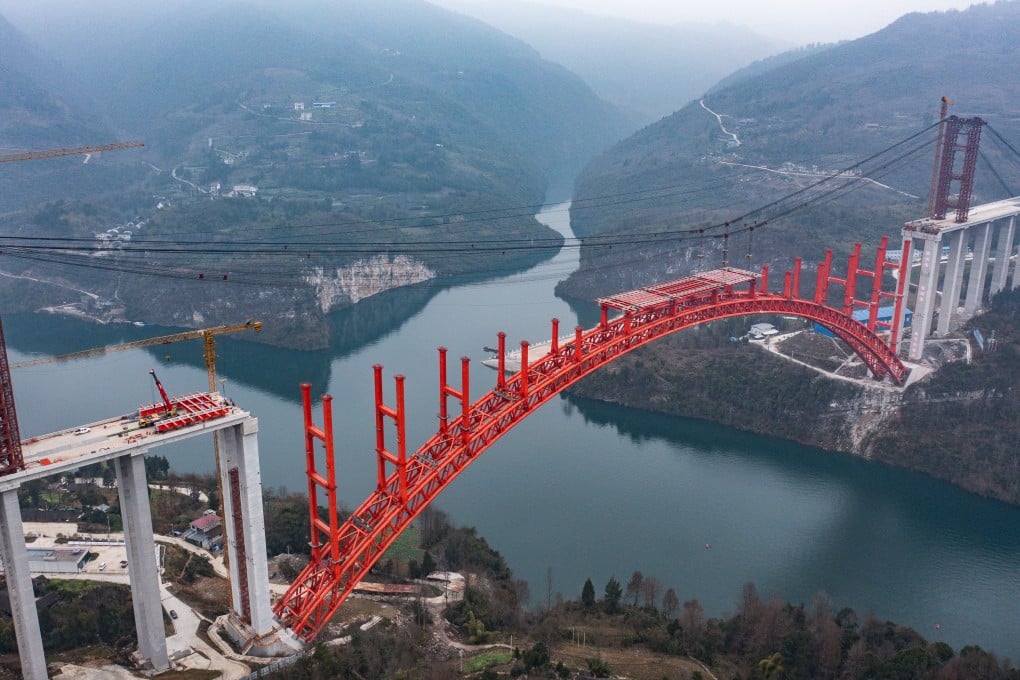China’s debt-ridden Guizhou faces reckoning after years of splashing out on pricey projects
- Beyond its brilliant bridges and vast roads, Guizhou province has one of the nation’s worst per capita income levels, along with debt pressure that could weigh it down for years
- But Beijing is told that ‘development pressures’ of the past are being rectified and infrastructure investments have been downsized

After more than a decade, a rapid and debt-inducing construction spree in one of China’s poorest regions appears to be significantly abating. But analysts suggest it will take years for Guizhou province to reduce its burden amid a series of controversies surrounding how local governments continue to handle their financial problems.
The southwestern province, known for its undulating hills and mountains, also boasts some of the world’s most spectacular bridges and roads. It is also among the most indebted regions, while its per capita income ranks among the worst when compared with other Chinese provinces.
The Guizhou government’s outstanding debt in 2023 accounted for 72 per cent of the region’s gross domestic product (GDP), above the 60 per cent standard set by the central government, according to CSCI Pengyuan, a rating agency in China.
“There were indeed some development pressures in the past, but with the help of the central government and coordination from eastern and western regions, we have resolved [debt] difficulties to a considerable extent,” said Zhao Ziyi, a Guizhou deputy to the National People’s Congress (NPC) and dean at the Guizhou University of Finance and Economics, on the sidelines of this week’s annual meeting of the national legislature in Beijing.
Zhao said that investment remains part of a range of tools to develop the provincial economy, but consumption has “gradually” become a driver.
